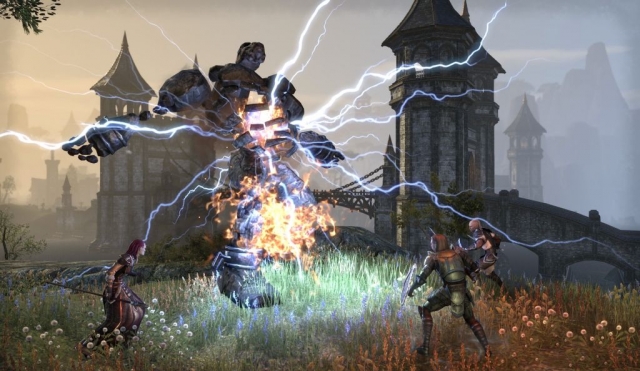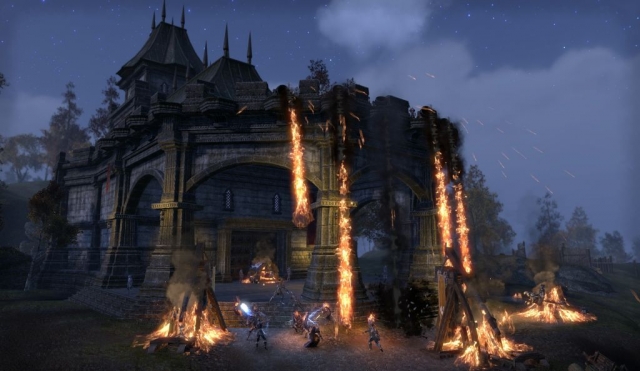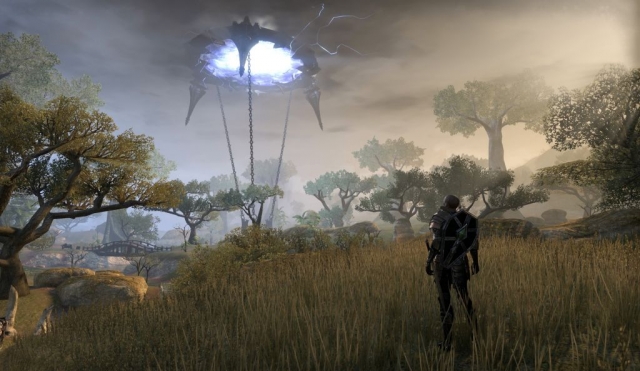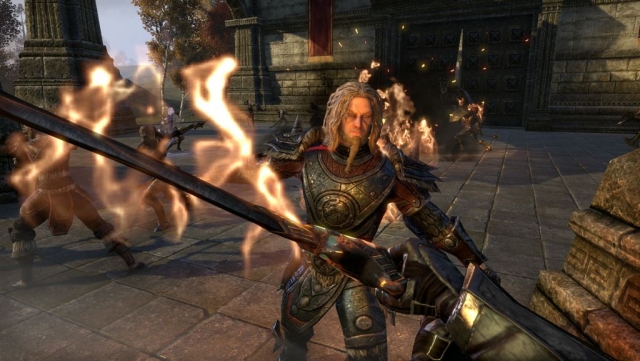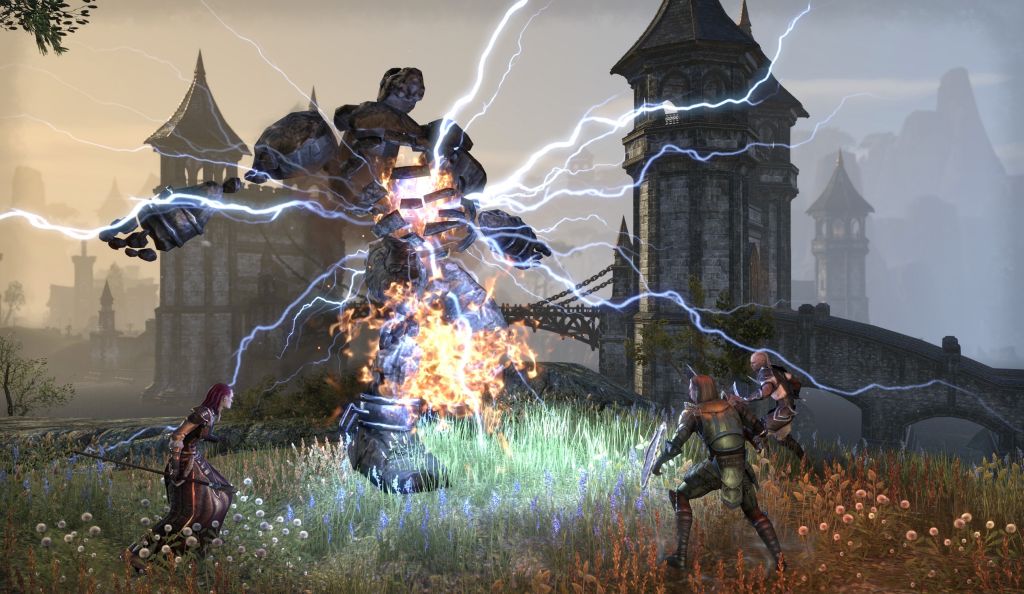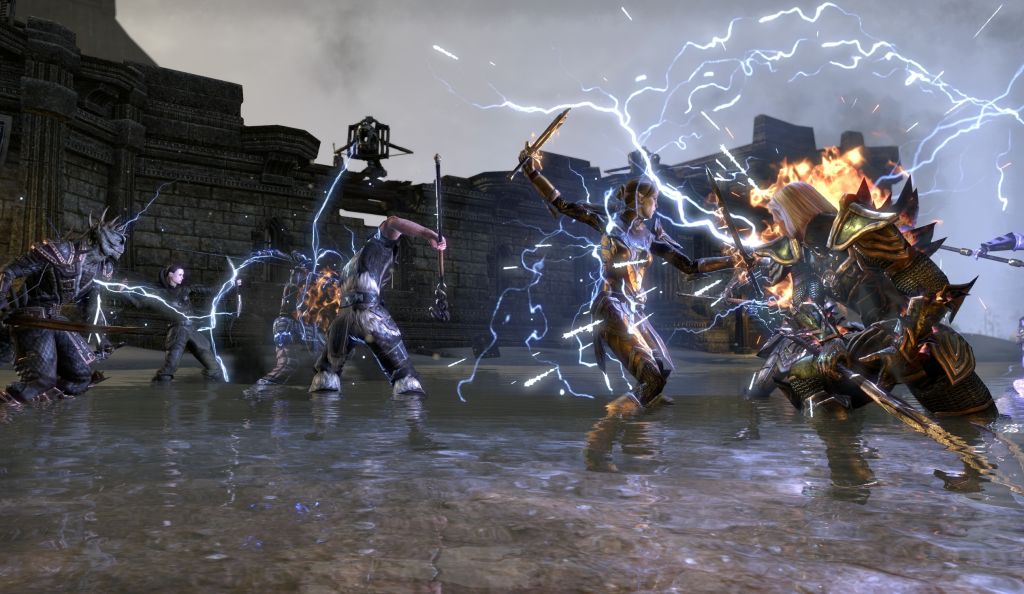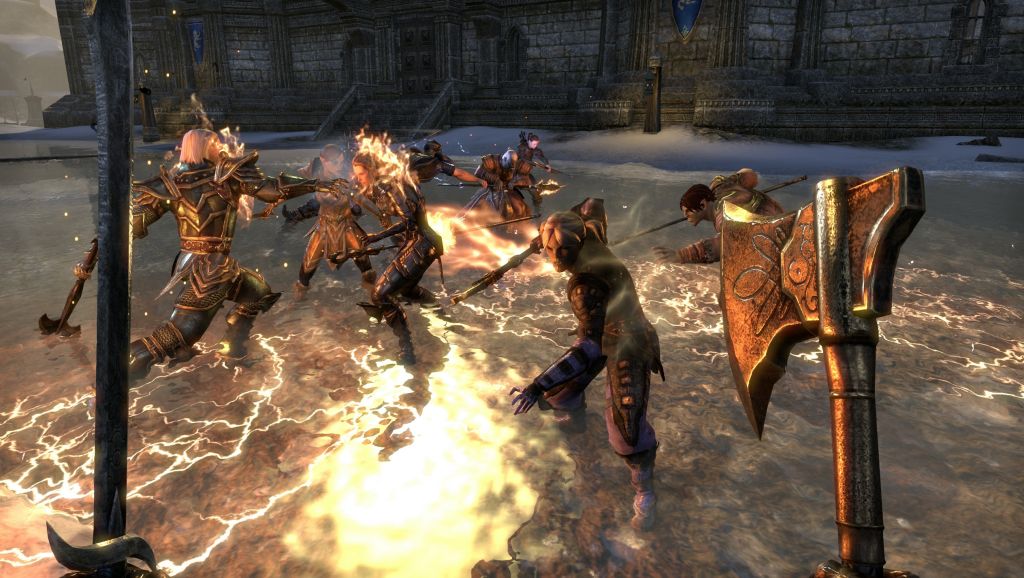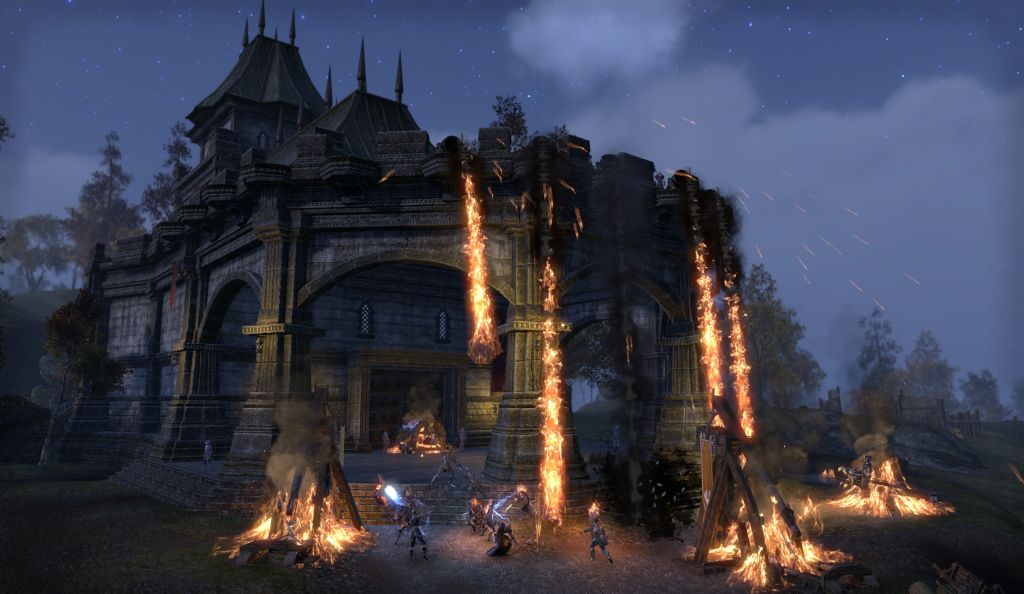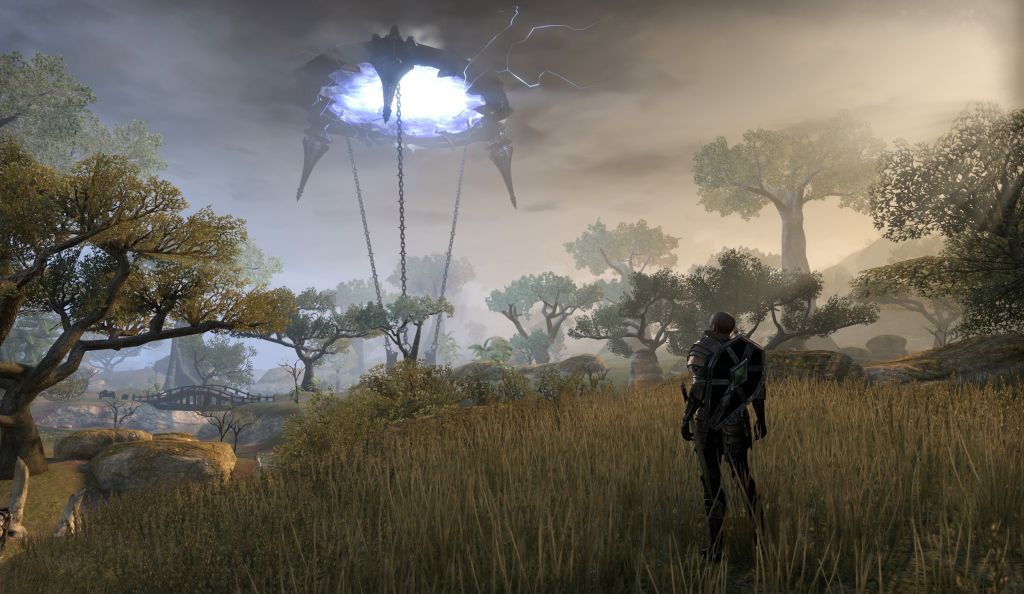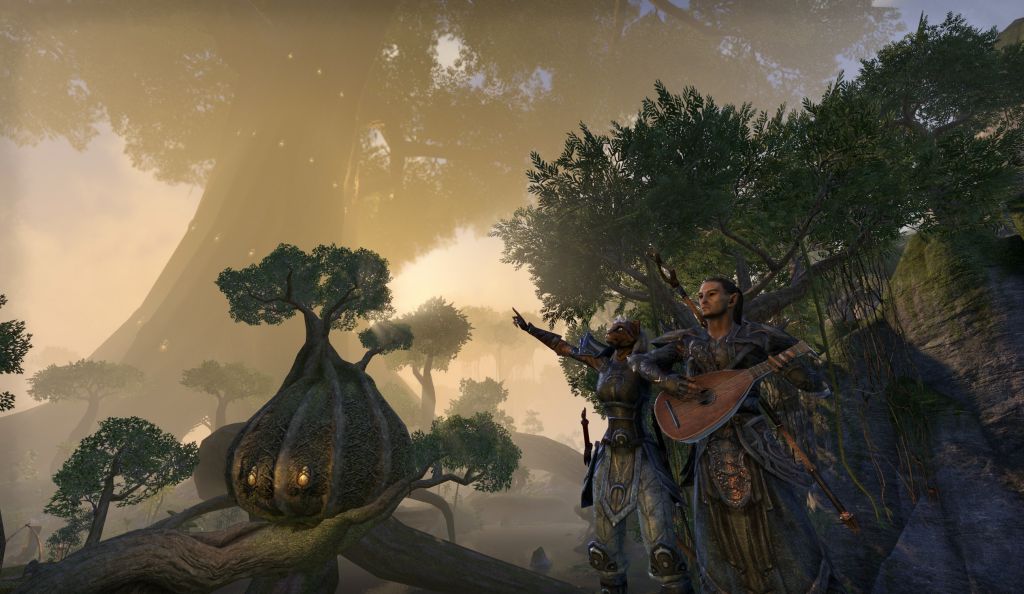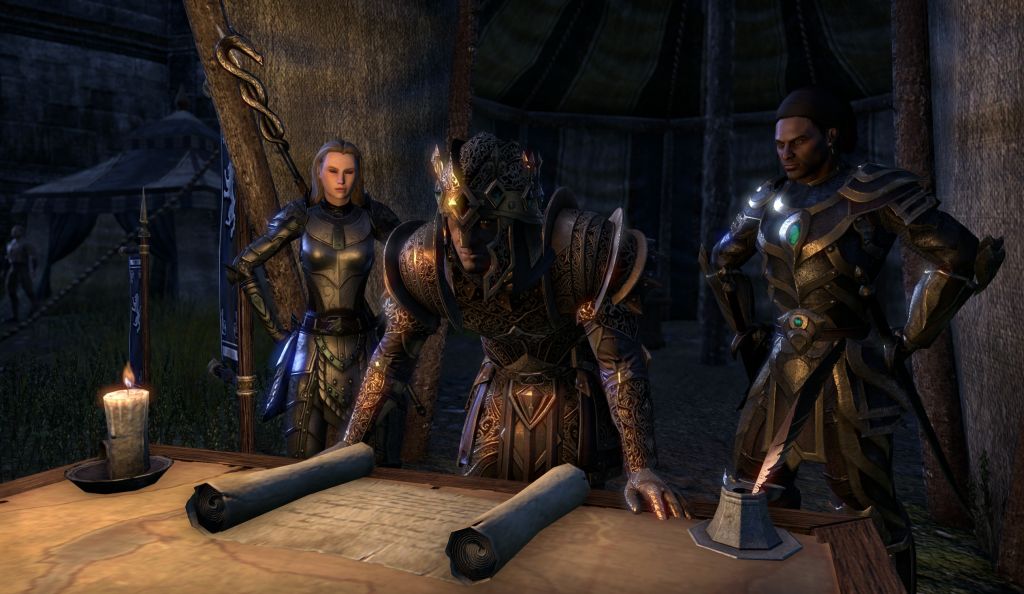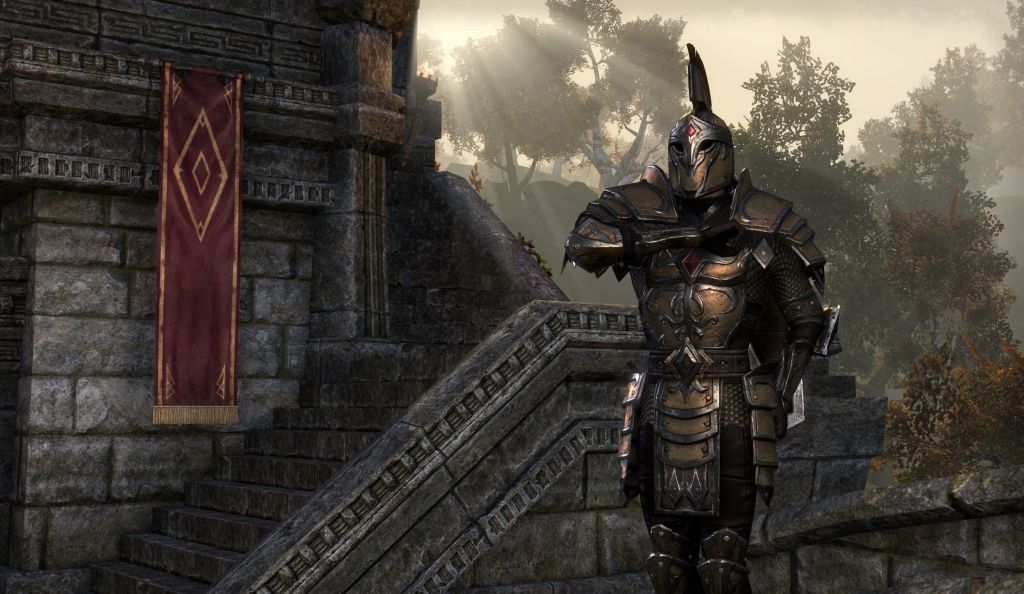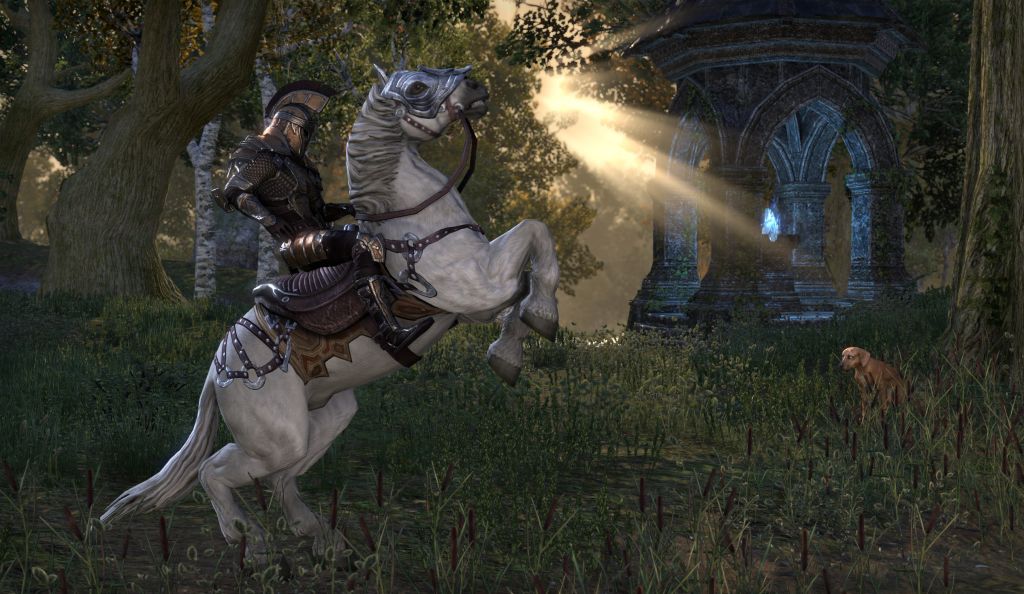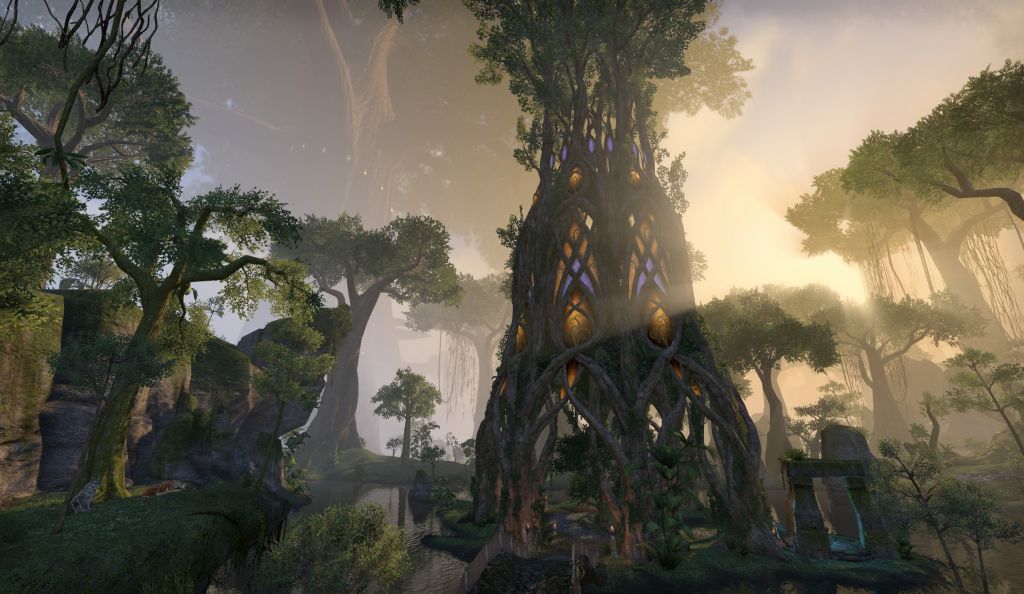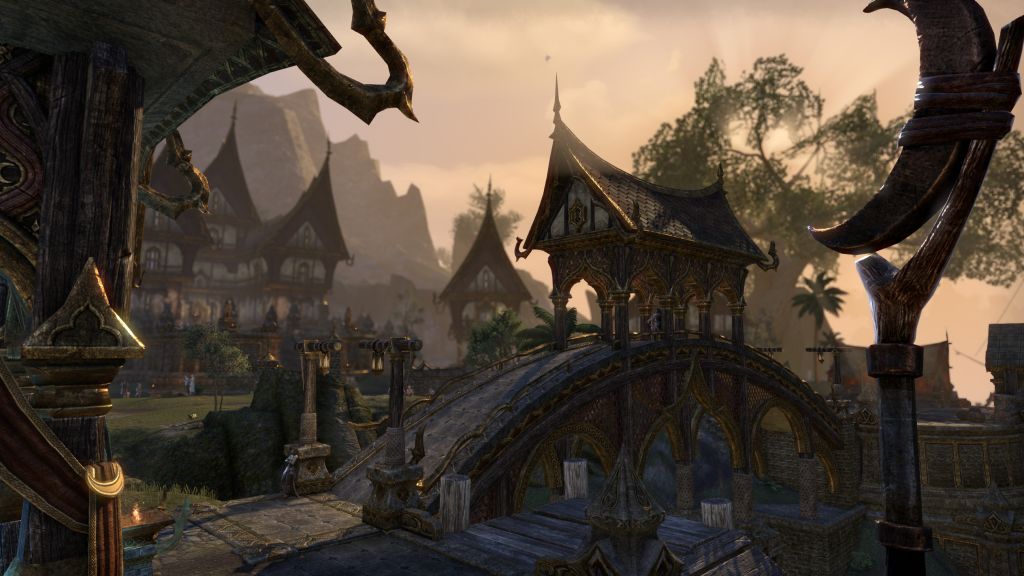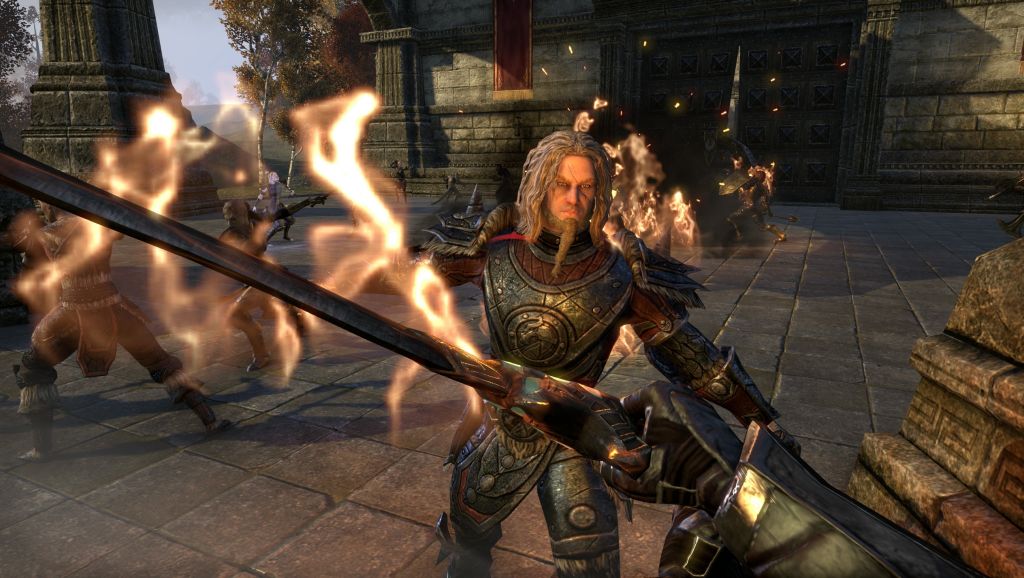The Elder Scrolls Online
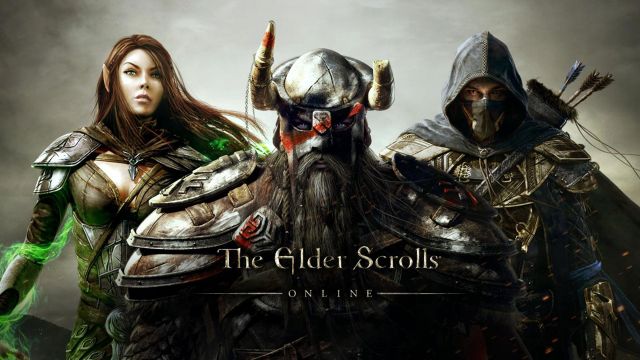
Some might say The Elder Scrolls Online was doomed from the beginning. That despite all its promise and close ties to the monumental critical and commercial success that was Skyrim, it was fatally flawed before it even released. That its.monthly subscription model — which will likely be dropped when the game moves to consoles — just won’t work, and in its transition to becoming an MMO, much of what made this series special would be watered down.
Even though I’ve invested over 200 hours in Skyrim, Elder Scrolls Online (ESO from here on out) was always something I was hesitant to get excited about.
Much of that stems from an overall lack of interest I possess for the MMO genre. I’ve played three MMOs over the course of my now decades-long gaming career; every one of those games released within the last five years and none managed to keep my interest long enough for me to excuse a monthly fee.
Even still, I spent more time in Skyrim than I have in most other games, so I decided to volunteer myself for this review. It can’t be that bad, right?
No, it can totally be that bad.
For those who are smart enough to have never put themselves through it, you should know that reviewing an MMO is tough. Games like these are largely social experiences, best played with a group of friends. This is the polar opposite of a game like Skyrim, where you’re the hero – the legendary Dragonborn who can Fus-Ro-Dah their way through any situation.
When you turn a game like that into an MMO, everyone is the hero and no one is special. For me, that makes the game less special. Video games are escapism for me, so when I play a game like The Elder Scrolls, where the fates of entire civilizations rest in my armored gauntlets, I want everyone to either admire me or fear me. If the NPCs aren’t whispering my name and telling tales of my heroic deeds from dark corners of dimly lit taverns, what’s the point?
That’s one problem. Another is the aforementioned subscription model, which is, in a word, archaic.
Gamers aren’t as willing as they used to be to spend monthly fees on one game, especially one that already carries with it a hefty $60 entry fee, when there are so many quality games, many of them free, that are all battling for our attention. If the fee doesn’t bother you, than we needn’t go on about it. Moving on.
There are plenty of things ESO does right. For starters, if you own a computer that can handle it, the game can look mighty pretty. It’s pretty ambitious in its scale — the game covers the entirety of Tamriel, with a few exceptions in areas that are only explorable in a limited capacity. Because it’s been designed to support hundreds of people all doing similar things, the world is big and beautiful. It also lacks the level of detail that would make it feel alive and real, but that’s a sacrifice any avid MMO player is likely both familiar with and more than willing to make.
There’s also plenty to do. The main story is an epic one, and will likely take you a fair amount of time to complete, even if you only take the critical path. If you choose to take on the myriad side missions that will become available as you explore its big open world, they’re interesting, even if they do tend to cover the entirety of MMO Quest Design 101.
Fetch quests, go here and kill X number of enemies, fight these waves of enemies before the big bad arrives, etc. It’s not necessarily substantial work, nor is it very rewarding, unless you’re the kind of player who enjoys scouring every nook and cranny of each virtual locale for all of its items, valuable or not. If that’s your thing, you’ll be able to play ESO forever.
And if it is, I’m not judging. I have been known to spend upwards of an hour in games like these creating the perfect avatar. The character customization in ESO is a step up over Skyrim, too. It covers the basics, giving you a large amount of creative freedom in deciding how your character will look (even though it won’t take long for many of those minutes of work to be covered by armor).
You can also choose from one of three playable factions: Aldmeri Dominion, the Daggerfall Covenant, and the Ebonheart Pact. Skyrim’s variety can be seen in the classes, too. There are four in total — Dragonknight, Templar, Sorcerer, and Nightblade — that cover your combat basics (melee, magic, ranged, etc.), but choosing sorcerer doesn’t necessarily mean you need to use a staff. Since weapons and armor are chosen in-game, the only things that remain exclusive to each class are the skill trees associated with each.
Me? I went with a Sorcerer who wears bulky, heavy armor and specializes in the art of summoning minions. This way I can let my minions do the killing for me while I hold back, safe, sipping a Mountain Dew and occasionally zapping any creature who dares to tred too close to my personal bubble.
Plenty made the transition from Skyrim to ESO. Your three basic stats are health, magicka, and stamina, and they’re all tied to multiple more in-depth stats, like armor and power. These can be improved by leveling up and attributing points to unlock skills and improve stats. There are even Mundus Stones, which act like Standing Stones and offer passive bonuses when activated.
One of the features that helps to set this game apart from other loot-based MMOs is the ability to craft your weapons and equipment. There are six forms of crafting: Alchemy (potions), Blacksmithing (metal weapons, armor), Clothing (light armor), Enchanting (jewelry, glyphs), Provisioning (food, beverages), and Woodworking (bows, shields)
So if you’re not necessarily in the mood to wait for the perfect gear to find you, the option is always available to make it yourself.
ESO has its problems, and I don’t see it becoming ‘the next World of Warcraft’, despite its stronger-than-ever brand name. It’s a solid MMO, I’d even go as far as to say it’s better than most. If you’re an Elder Scrolls fan who has always wanted to play one of these games in co-op, this is the next best thing, at least for the time being. However, if you’re looking for Skyrim: The MMO, this will likely disappoint.
Reviewed By: Adam Dodd
Publisher: Bethesda Softworks
Rating: 70%
——————————————————————————–
This review is based on a digital copy of The Elder Scrolls Online for the PC provided by Bethesda Softworks.
 Game Over Online
Game Over Online